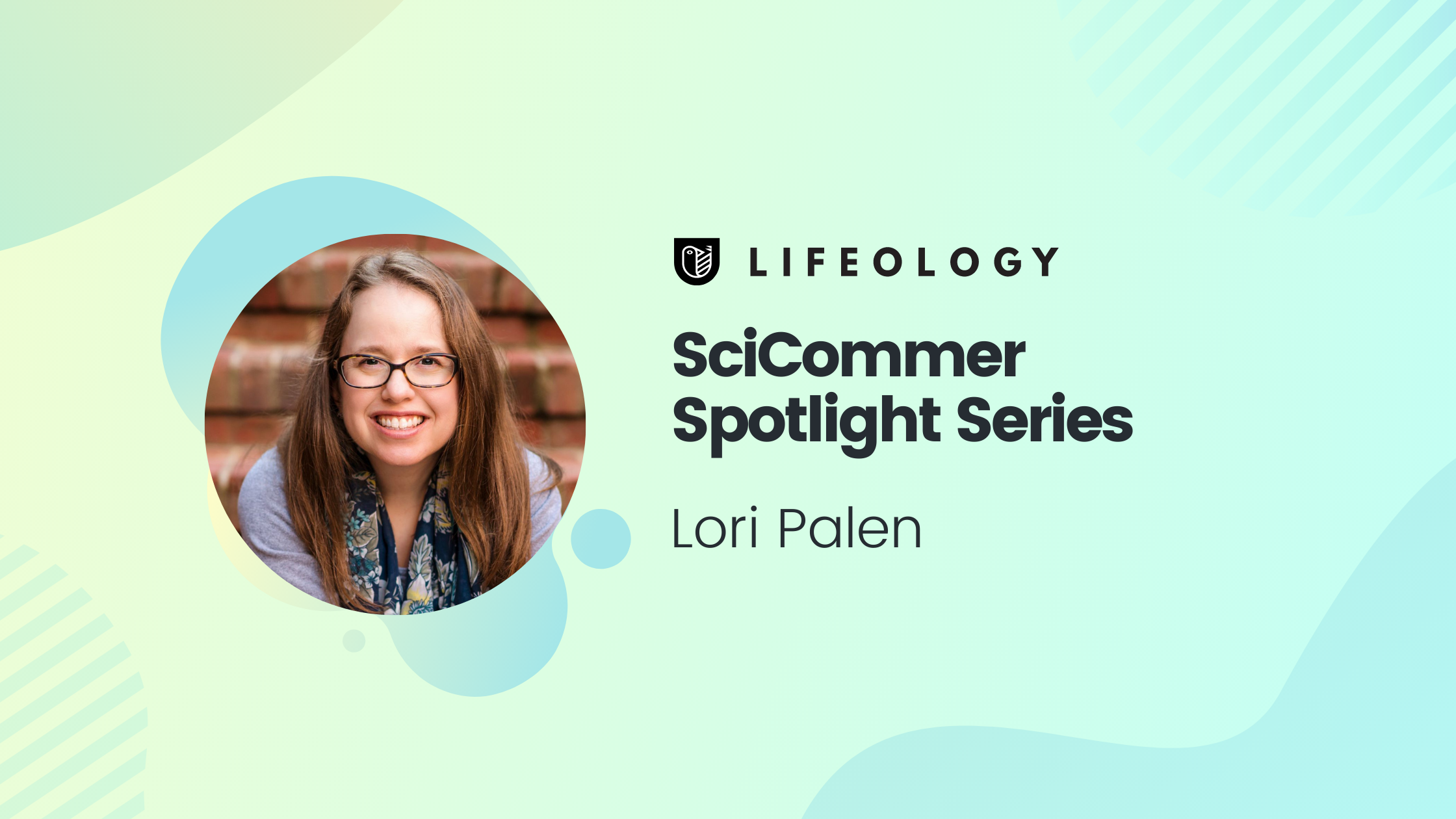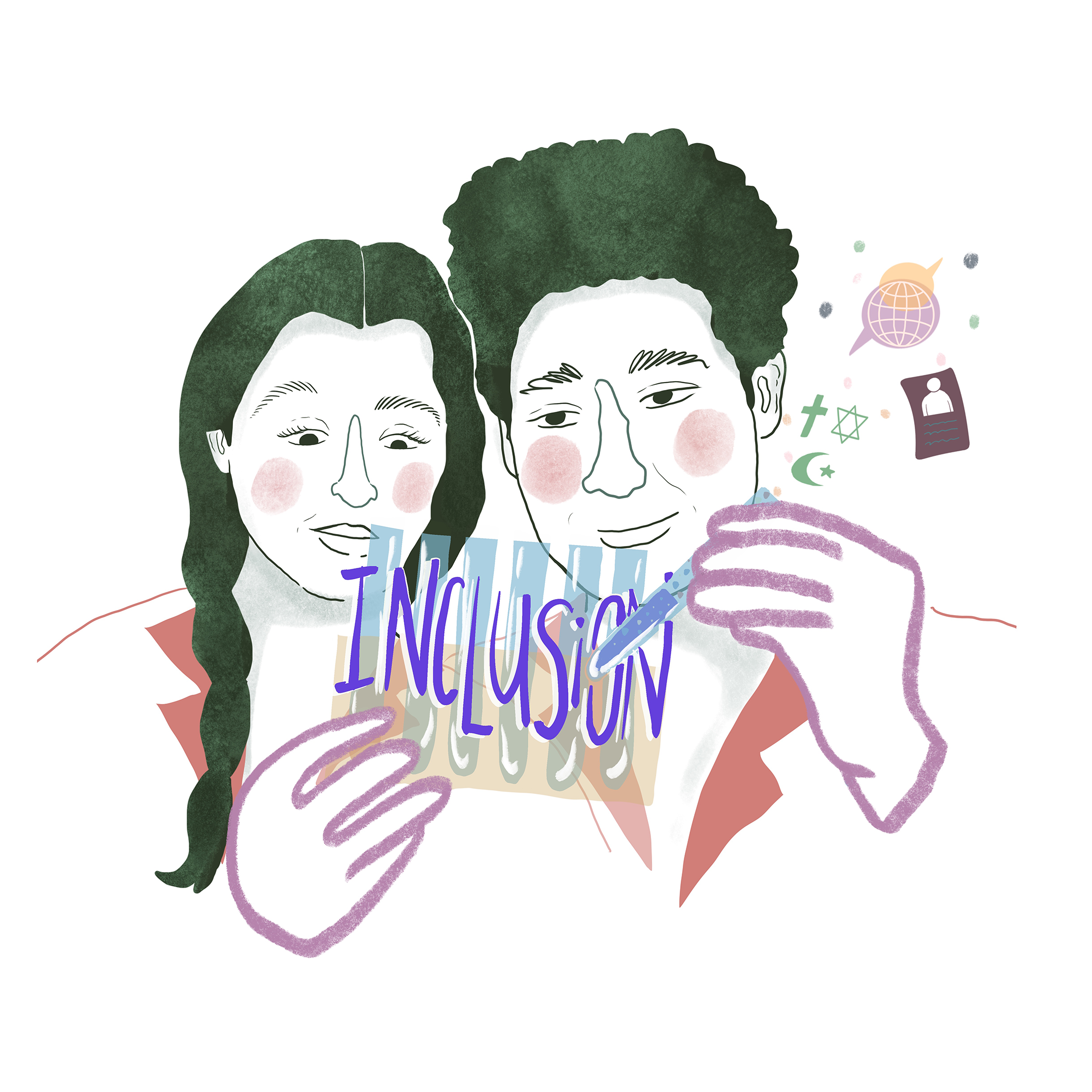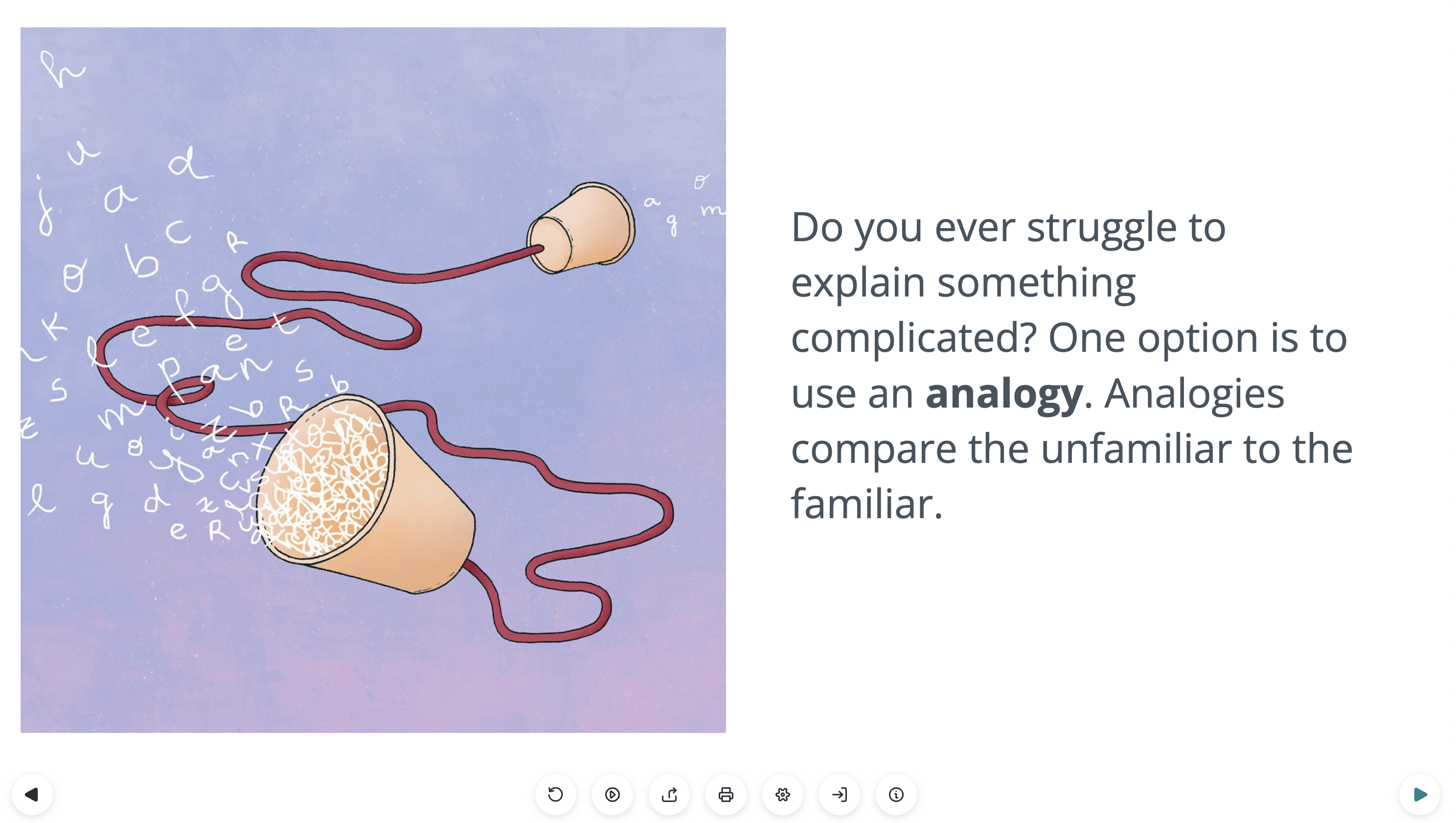We hear a variety of answers to the question: “Why SciComm?” No two SciComm careers look the same! If you’re interested in SciComm, there’s room for you here! If you want to pivot within the SciComm space, there’s room for that, too! Find what interests you with the help of hearing from a variety of SciCommers. Many have left the lab bench for a chance to expand their scientific knowledge beyond their single area of expertise. Others still work as scientists but engage with and serve the public through science communication. Some people even knew early on that they wanted to pursue science communication. We bring you all these stories and the stories in between in our SciCommer Spotlight Series. In this series of blog posts, learn about science communicators’ career paths, their favorite SciComm projects, and why they participate in SciComm. There’s also some advice for aspiring SciCommers!
Meet Lori Palen!

Tell us a little bit about yourself
I have a PhD in human development and family studies, and I spent about a dozen years after graduate school working as an adolescent health researcher. As my career progressed, I got more and more interested in the communication part of my job. This March, I took the plunge and started my own research communication company. Data Soapbox works with researchers (and other individuals and organizations that have data) to help them communicate information in ways that drive action. We develop products like reports, posters, and infographics, and we also offer trainings on science communication.
Did you always want to be a SciCommer?
Nope! Right after college, I thought I wanted to become a therapist, so I worked in various human service jobs. I got disillusioned with the treatment side of mental health, so I went back to school to learn about preventing risky behaviors, like substance use, violence, and sexual risk behaviors.
Toward the end of my PhD program, I took a workshop with the grandfather of data visualization, Edward Tufte. That helped me to start to realize that, as researchers, we generally don’t do a great job of communicating our results. Over the years, I read presentation and data visualization books by experts like Garr Reynolds, Nancy Duarte, Stephanie Evergreen, and Cole Nussbaumer Knaflic, and I applied their guidance to my work.
It got to the point where I was more excited about communicating results than about generating results, so I started exploring options for full-time science communication work. After being turned down for a few opportunities, I decided to make my own!
In early 2020, I started preparing to start my own business. I enrolled in a graphic design certificate program at my local community college. I met with SCORE volunteers to learn more about starting a business. I worked with a great graphic designer, Angie Scala, to develop my logo and website. The COVID-19 pandemic threw off my timeline, but by late 2020, the world seemed to have settled down enough for me to resign from my job and make Data Soapbox a reality.
There’s a lot of different careers within SciComm. How did you choose which direction you wanted to go?
The services that Data Soapbox offers are a natural outgrowth of what I most enjoyed doing during my time as a researcher. I liked collaborating with colleagues to figure out the audience and purpose for our communications and then designing (conceptually and visually) products that would address those needs.
What’s been your favorite part about working in SciComm?
My work has given me the opportunity to meet a really diverse array of professionals who are trying to make the world a better place. In just the past few months, I’ve had the chance to work with social scientists who do the kinds of research I used to do, plus university administrators, educators, legal professionals, and fellow small business owners and consultants.
What’s something about SciComm that you wish you knew before pursuing this career?
Part of me wishes that I’d known that SciComm was a career option when I was still in graduate school. The only really visible options were research and teaching.
Would I have pursued SciComm back in graduate school if I’d known more about it then? I’m not sure. But, I get super jealous when I see the amazing SciComm training opportunities that are available to students in the 2020’s!
What do you think is your most important job as a SciCommer?
To get accurate information into the hands of people who can use it to do good in the world.
Tell us about your favorite SciComm project
That’s like picking a favorite dessert…can’t do it! I will say that I really love doing live workshops with college students. It gives me a chance to get away from my desk, tell some nerdy jokes and, most importantly, lay the groundwork for people to be better communicators over the course of their careers.
What advice do you have for aspiring SciCommers?
(This is specific to people, like me, who get paid to do scicomm for outside clients.) Tell everyone you know about what you do and the services you offer, through both active (i.e., individual email) and passive (i.e., social media) channels. To date, all but one of my clients are either someone I knew in the “before times” or someone referred by someone I know.




